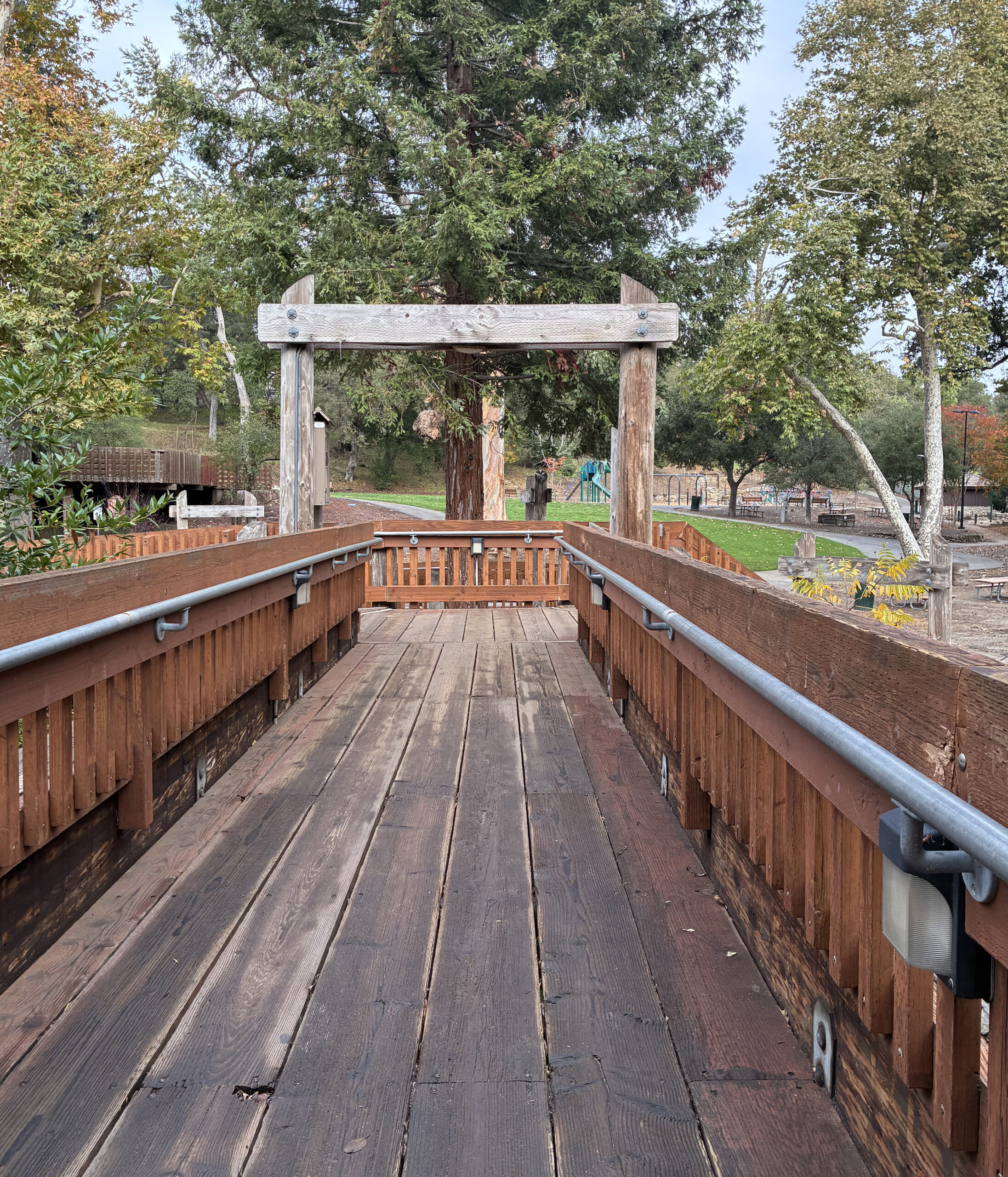Support Group for Women Healing After a Controlling Relationship
March 4th, 2026

Cozy lodging. Nourishing meals. Expert guidance.
A tranquil setting surrounded by towering trees and a gently running creek
Join us for a powerhouse weekend designed for therapists who want to deepen clinical mastery while restoring their own nervous systems.
Held at the historic Inn at Saratoga, this retreat blends high-level professional training, restorative time in nature, and meaningful connection with other clinicians.
Nestled among trees with a peaceful creekside backdrop, the Inn offers a quiet, reflective environment ideal for learning and renewal. A walking bridge behind the property leads directly into a beautiful creekside park — perfect for gentle breaks, grounding walks, or quiet integration between sessions.
Across two days, you’ll learn four essential clinical frameworks you can apply immediately with individuals and couples. Each session is practical, experiential, and grounded in real-world therapeutic work. You’ll leave with new tools, deeper confidence, and renewed clarity in your therapeutic voice.
The Inn features an onsite restaurant and is just steps from charming downtown Saratoga, where you’ll find cafés, wine bars, and excellent dining options — all within easy walking distance.


Morning (9:30–12:30)
After Betrayal or Deceipt: The Path to Repair & Rebuilding Trust
Lunch (12:30–2:00)
Afternoon (2:00–5:00)
Two-Chair Work for Ambivalence, Resistance & Stuck Clients
Morning (9:30–12:30)
Treating Perfectionism & People-Pleasing: Restoring Agency, Boundaries & Authenticity
Lunch (12:30–2:00)
Afternoon (2:00–5:00)
The Root of Communication Breakdowns: Reactivity, Interpretation & Emotional Safety in Relationships
Training Format
The retreat includes a blend of didactic teaching, group discussion, experiential exercises, clinical demonstrations, and guided practice — ensuring the material becomes usable, embodied skill rather than just information.
A clear, structured framework for stabilizing ruptures and guiding clients through relational repair.
Trust breaks in many ways — broken promises, secret-keeping, financial breaches, emotional abandonment, or moments a partner wasn’t there when needed. These ruptures destabilize individuals and couples, leaving therapists searching for a grounded, effective roadmap.
This training teaches how to assess and stabilize ruptures, reduce emotional intensity, and guide clients through the early aftermath and long-term repair.
🟢 Core Foundations
🟢 Pattern Recognition
🟢 Clinical Tools
🟢 When to Use
🟢 Outcome
A clear, structured process you can use immediately with individuals and couples navigating betrayal or significant relational injury.
An experiential method to resolve internal conflict and restore clarity & agency.
Clients often arrive stuck, ambivalent, or expecting the therapist to decide for them. Two-chair work externalizes internal conflict, surfaces hidden fears, and creates emotional movement.
This module teaches a modern, accessible version of two-chair dialogue that is safe, structured, and highly effective.
🟢 Core Foundations
🟢 Pattern Recognition
🟢 Clinical Tools
🟢 When to Use
🟢 Outcome
A powerful experiential tool for creating movement, clarity, and responsibility — with individuals or couples.
A practical, identity-informed approach for helping clients move out of self-abandonment, approval-seeking, and relentless self-pressure.
Perfectionism and people-pleasing are two of the most common — and most misunderstood — adaptations clinicians encounter. They show up as chronic over-functioning, emotional suppression, conflict avoidance, resentment, shame, or performance-based worth… yet underneath these patterns are tender identity wounds and old survival roles clients don’t yet know how to step out of.
This module offers clear, accessible, research-informed tools to help clients understand these patterns, interrupt self-sabotage, and return to authenticity.
🧠 What You’ll Learn
🟢 Core Foundations
🟢 Pattern Recognition
🟢 Clinical Tools
🟢 When to Use
🟢 Outcome
A grounded, practical framework for helping clients release old survival roles, rebuild inner authority, increase emotional honesty, and reconnect with their authentic self — without triggering shame, collapse, or defensiveness.
A core relational framework for helping any client stay grounded, connected, and emotionally responsible — in therapy and in life.
Communication problems rarely come from “poor skills.”
They come from:
nervous system activation
distorted interpretations
fear-based meaning-making
emotional fusion
old identity patterns
protective habits
felt threat
This training shows you how to intervene at the actual level of breakdown — where reactivity, misinterpretation, and emotional safety collide.
It is equally effective for individual adults, couples, and clients navigating family or workplace communication challenges.
🧠 What You’ll Learn
🟢 Core Foundations
• How communication breaks down at the level of interpretation, not content
• How reactivity hijacks listening and distorts meaning
• What emotional safety truly requires (clinically, not conceptually)
• How to help clients stay connected without collapsing or overpowering
• How to support clarity without rescuing or taking sides
• Differentiation — explained in therapist-friendly language anyone can apply
🟢 Pattern Recognition
• Reactivity styles: fight, flight, freeze & appease — in communication
• How the nervous system shapes tone, pacing, and phrasing
• Common misinterpretations clients default to under stress
• Why shutdown, defensiveness, and volatility are predictable patterns
• How early experiences shape conflict templates in adulthood
🟢 Clinical Tools
• Micro-interventions that instantly reduce reactivity
• The “interpretation pause” technique to reduce personalization
• Emotional responsibility scripts clients can use immediately
• How to slow communication and increase felt safety
• Tools for clients who talk over each other, shut down, or spiral
• Moment-to-moment language that shifts defensiveness into clarity
🟢 When to Use
• When clients repeat the same conflict cycle
• When individuals struggle with communication at home or work
• When clients take things personally — or assume negative intent
• When emotional escalation blocks repair
• When clients collapse their identity into the conflict
• When misinterpretation is driving the distress
🟢 Outcome
A grounded, robust relational framework that helps clients:
reduce reactivity
regulate through conflict
communicate from clarity instead of fear
unite over differences instead of divide
build emotional safety in real time
This module strengthens your ability to de-escalate, interrupt misinterpretations, and restore connection — whether you work with individuals, couples, or systems.
Your retreat registration includes:
✔ 10 CE hours
✔ Beautifully designed retreat workbook
✔ Clinical handouts, scripts & guides
✔ Breakfast & refreshments both days
✔ 15% lodging discount
✔ Access to peaceful & quiet outdoor areas
This retreat is a rare blend of deep clinical training, professional community, and restorative space.
You’ll experience:
🔥 High-Impact Clinical Training
Four transformational modules focused on core, immediately usable interventions.
🧠 Skills You Can Use Monday Morning
🤝 Professional Community
Connect with therapists who value depth, mastery, and integrity.
🌲 Nervous System Renewal
A flowing creek, surrounded by trees, slow mornings, grounding space.
🔥 Supportive, Nourishing Environment
Good food, peaceful lodging, fresh air.
⚙️ A Stronger Therapeutic Presence
More clarity, steadiness, and confidence.
✨ Transformation for You & Your Clients
A catalytic weekend that shifts how you listen, lead, and intervene.
Retreat Tuition:
$597 early bird until February 18, then $697.
Includes all trainings, CE hours, workbook, fire circle, handouts, and meals.
Lodging
15% discount for all retreat attendees.
Booking info provided after registration.
👉 Register Now
(Limited spots to maintain an intimate, connected learning environment.)

Ideal for:
✔ Licensed & pre-licensed clinicians
✔ Therapists seeking practical, high-impact tools
✔ Clinicians working with individuals or couples
✔ Therapists desiring clarity, renewal & depth
✔ Those who value community & meaningful connection
How many CE hours do I receive?
You’ll earn 10 CE hours, fully approved and woven into the flow of the training so you can learn, absorb, and apply the material with ease.
Are meals provided?
We provide a light continential breakfast, morning coffee/tea, and afternoon refreshments on both days. There is also a delicious on-site restaurant with a wide variety of options. You’re welcome to enjoy meals on your own for quiet reflection or join other retreat attendees for connection and community. You can relax, stay nourished, and focus fully on the retreat without worrying about food logistics.
Is lodging located right at the retreat location?
Yes – everything you need is conveniently located on the retreat grounds. We’ve secured a special discounted lodging rate for all participants. You’ll book your room separately, and we’ll send the booking link and details upon registration.
What client populations is this retreat designed for?
This training is designed for therapists who work with adult clients — whether individually or as couples.
The clinical frameworks we cover are ideal for clients navigating:
If you work with adults in therapy — individually or in partnership — these tools will directly support and strengthen your clinical work.
Do I need previous experience with any of these topics to attend?
Not at all. These teachings are powerful but fully accessible, whether you’re new to this work or an experienced clinician. Every concept is grounded, practical, and immediately applicable — with clients, couples, and often within your own relationships as well.
What should I bring?
Bring anything that helps you feel comfortable and present:
And most importantly: a sense of curiosity and openness. Everything else will be provided.
Is this retreat supportive if I’m also looking for relaxation?
Absolutely. This retreat is intentionally designed to support nervous system regulation, emotional grounding, and genuine renewal.
Many clinicians attend because they’re craving both:
✨ powerful clinical tools and
✨ spaciousness to rest, integrate, and reconnect with themselves.
You’ll experience both learning and restorative time.
How large is the group?
The group is kept intentionally small so you can feel connected, supported, and able to ask questions freely. This intimate structure creates the ideal environment for real learning, real transformation, and meaningful connection among participants.
A serene boutique lodge overlooking a quiet creek near downtown Saratoga — walking distance to Saratoga Village restaurants + peaceful park access via the footbridge. The retreat location offers peace, nature, and ease of access for busy therapists across the Bay Area:
20 minutes from Sunnyvale, Cupertino, and Mountain View
25 minutes from Palo Alto
30–35 minutes from Redwood City and San Mateo
45–50 minutes from San Francisco
Quiet enough for deep restoration, close enough for easy travel.
Retreat attendees receive 15% off lodging onsite.

March 4th, 2026
March 6th, 2026
March 28th, 2026
April 8th, 2026
April 15th, 2026
April 17th, 2026
April 24th, 2026
Licensed and pre-licensed clinicians seeking practical tools, renewed clarity, and meaningful connection.
CE Provider Information: Michelle Joy, MFT (Provider #65866) is approved by the California association of marriage and family therapists to sponsor continuing education for LMFT’s, LCSW’s, LPCC’s and LEP’s. Michelle Joy, MFT maintains responsibility for the program and all its content.
Accommodations: To request accommodations for special needs, please email the Program Administrator at [email protected].
Grievances: To obtain the grievance policy or to report a grievance, please email [email protected] or call 650-485-1504.
Certificates: Course completion certificates will be awarded at the end of the course upon submission of a completed evaluation form and, if applicable, a post-test.